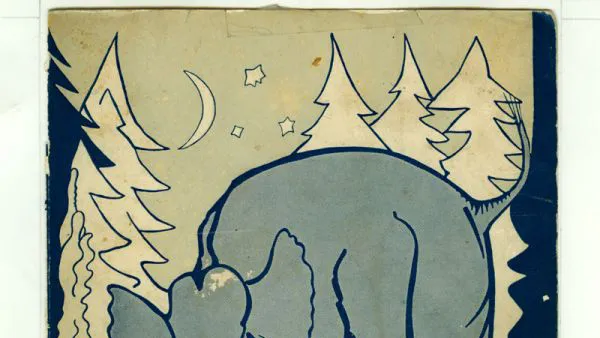Reconsidering the Most Depressing Album Ever

It’s the 21st anniversary of one of the most heinous attacks on American soil and also of one of the most widely-considered Depressing Albums of the 21st century: the Microphones’ The Glow, Pt.2. Sitting on the living room couch, I turn to my roommate.
Me: “I want to listen to an album.”
Her: “Hm?”
Me: “The Glow, Pt. 2, maybe?”
Her: “No, that album makes me want to [REDACTED] myself.”
And at parties, too (but don’t ask me why The Microphones were a topic of party-discussion): “it’s like, the saddest album ever,”, “I can’t get through it,” and so on. This response remains a bit foreign to me, hence the need for a dissenting opinion. But I digress:
Roommate 1 leaves to shower and I tab quickly to YouTube: I’m in. The Glow, Pt 2. is now playing on the bookshelf speakers. I begin to write.
Two tracks in and Roommate 2 pokes her head around the doorframe. She looks at the screen; she looks at me.
Her: “Did something happen?”
Me: “...“
The motivic juxtaposition of the body (through a focus on blood, breath, visceral sensation) with the vastness of nature (opening with thunderclouds, mountains, the moon) sets up a conflict between the self and the overwhelming nature of grief.
And frontman Phil Elverum evokes natural imagery not only through lyrics, but the music itself. In the Moon (among other tracks) the instrumentals swell loud enough to make any words unintelligible; coupled with verbal calls to mountains, planets, etc, this cements the feeling of drowning in a huge world- a well of emotion. To quote Roommate 2, “the high distortion makes you feel like you’re in hell, which is what grief feels like.” I’d say it’s like you’re trapped in the insulation between death and reality, and your ear is pressed to a hole in the drywall, and through that hole comes The Glow, Pt. 2.
Elverum identifies a comfort in the calm-after-loss, an odd relief in the immobility between the walls. One of the album’s best details is the quiet drum underlying the first and final tracks; a heartbeat. After minutes of fading instrumental, My Warm Blood ends with a few lonely beats. I’m alone, it says: but I’m still here.
Picture this: I’ve placed a pickup order for chicken katsu ramen at a restaurant 10 minutes away from my house. It’s 9pm. I’m home alone and breakup-numb and I need something to cry to in the car that isn’t Lucy Dacus. The first chords of the album ring through tinny car speakers. My forearms rest lax on the sticky pleather of the wheel.
My blood flows harshly; I feel the bite of dry A/C between my ribs, the yellow eye of the low moon. Streetlights blend long through windshield-smudges, reflections on the wet asphalt of summer Houston rains. There’s something about the quiet withdrawal of this moment that’s more comforting than anger could ever be.
As the album reaches its final quarter, we see Phil grappling with his fragile humanity. I Felt My Size strips back the grand metaphor of earlier tracks, placing the narrator back into an ultimately small body. instrumental [2] tends flat, energy waning: he’s flagging. In the car, my takeout spoon scratches the bottom of the bowl. Nature and man have begun to separate, beads of oil forming in the watery surface of ramen broth.
It’s only in the final two tracks that we find a tentative unity. Maybe the narrator has slain the bear, maybe it has slain him; does it make a difference? He’s found the peace he needs, alone on the ground. He’s severed himself from memory and begun to sew the pieces back together.
This album doesn’t strike me as an admission of defeat, but rather a cry of survival through pain. It’s visceral, it’s overwhelming. More than anything, it’s alive.
Listen to Charlotte Harrington and Will May on Gödel's Incompetence Theorem, 2:00 pm Fridays on KANM.org
